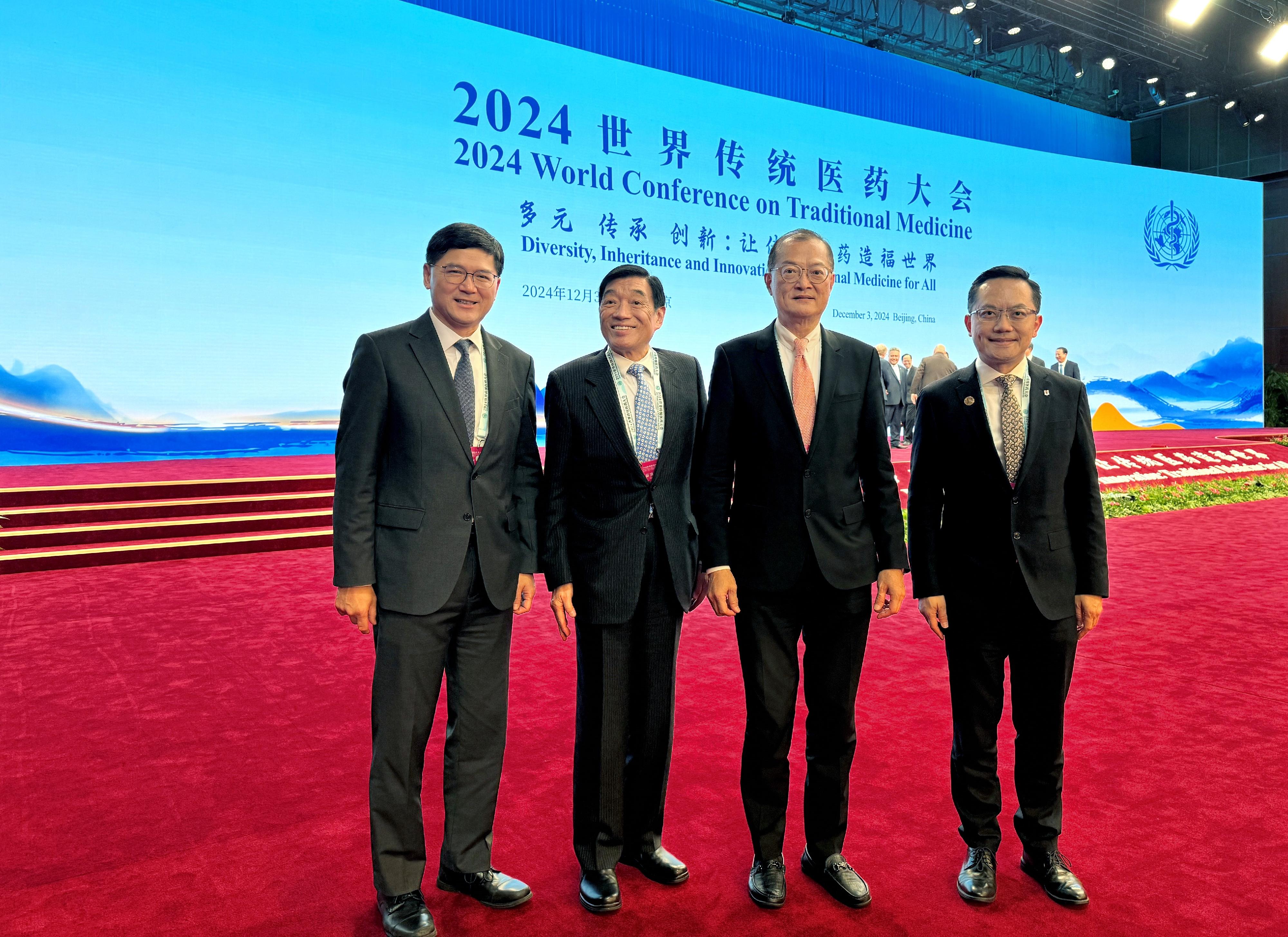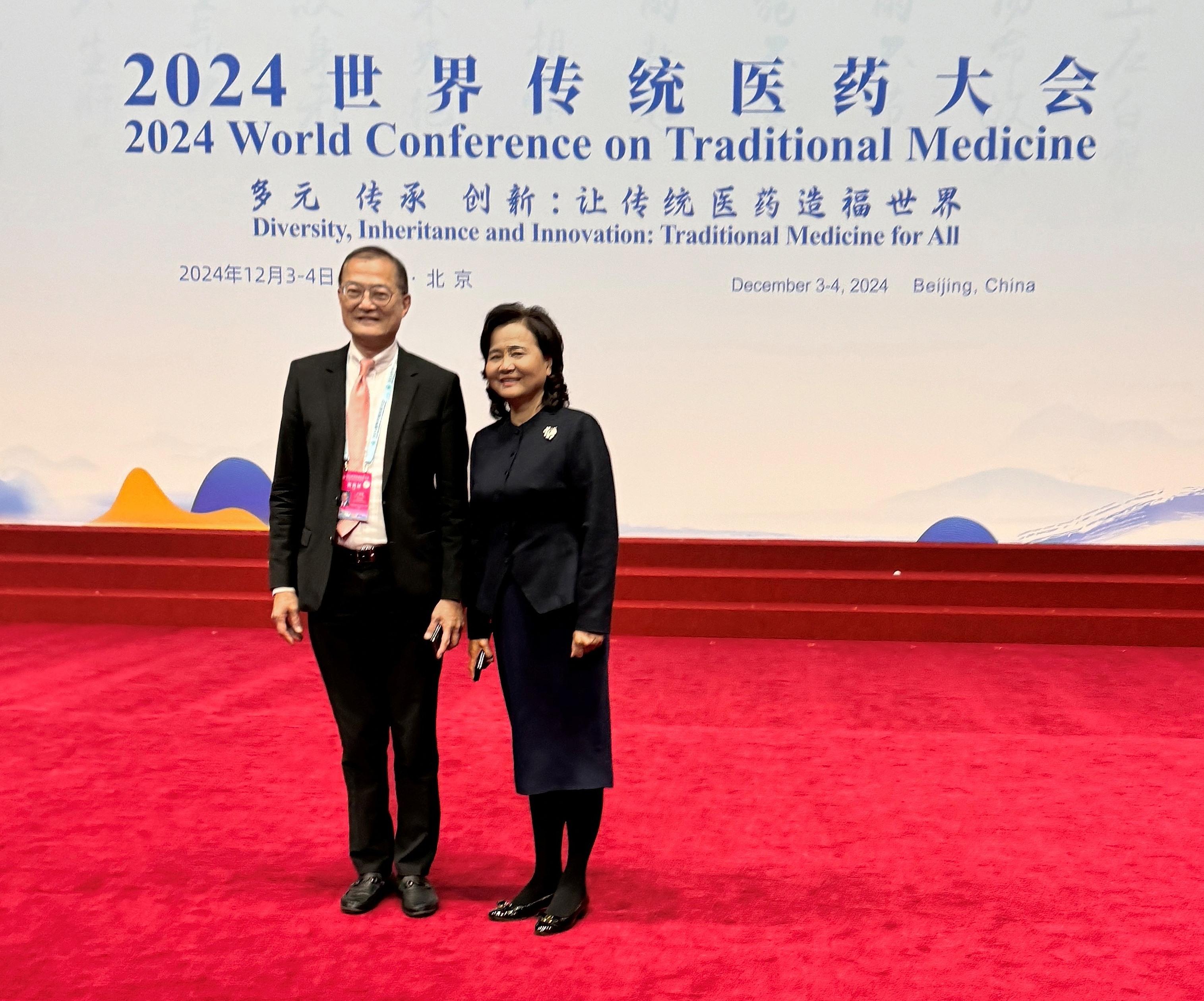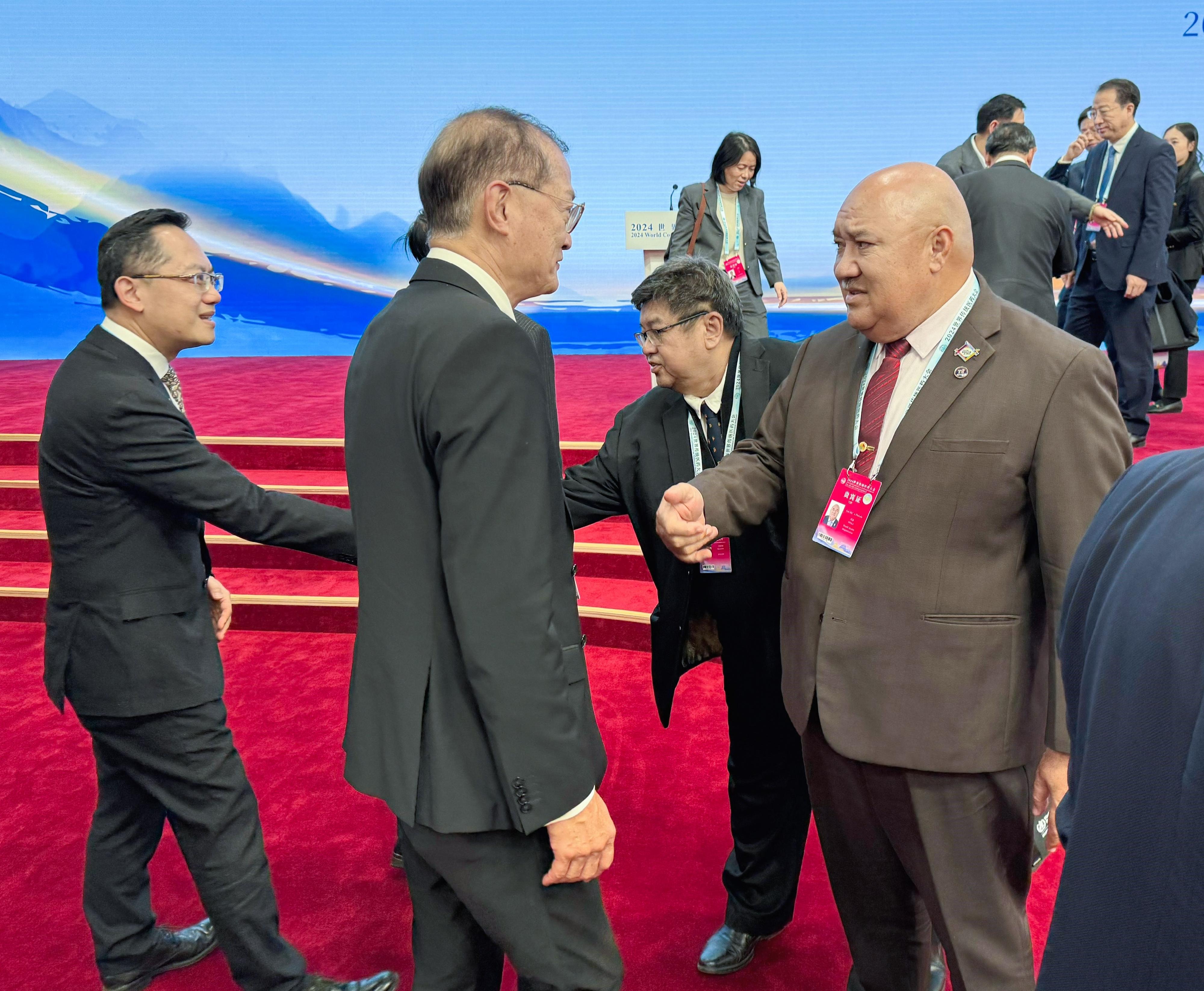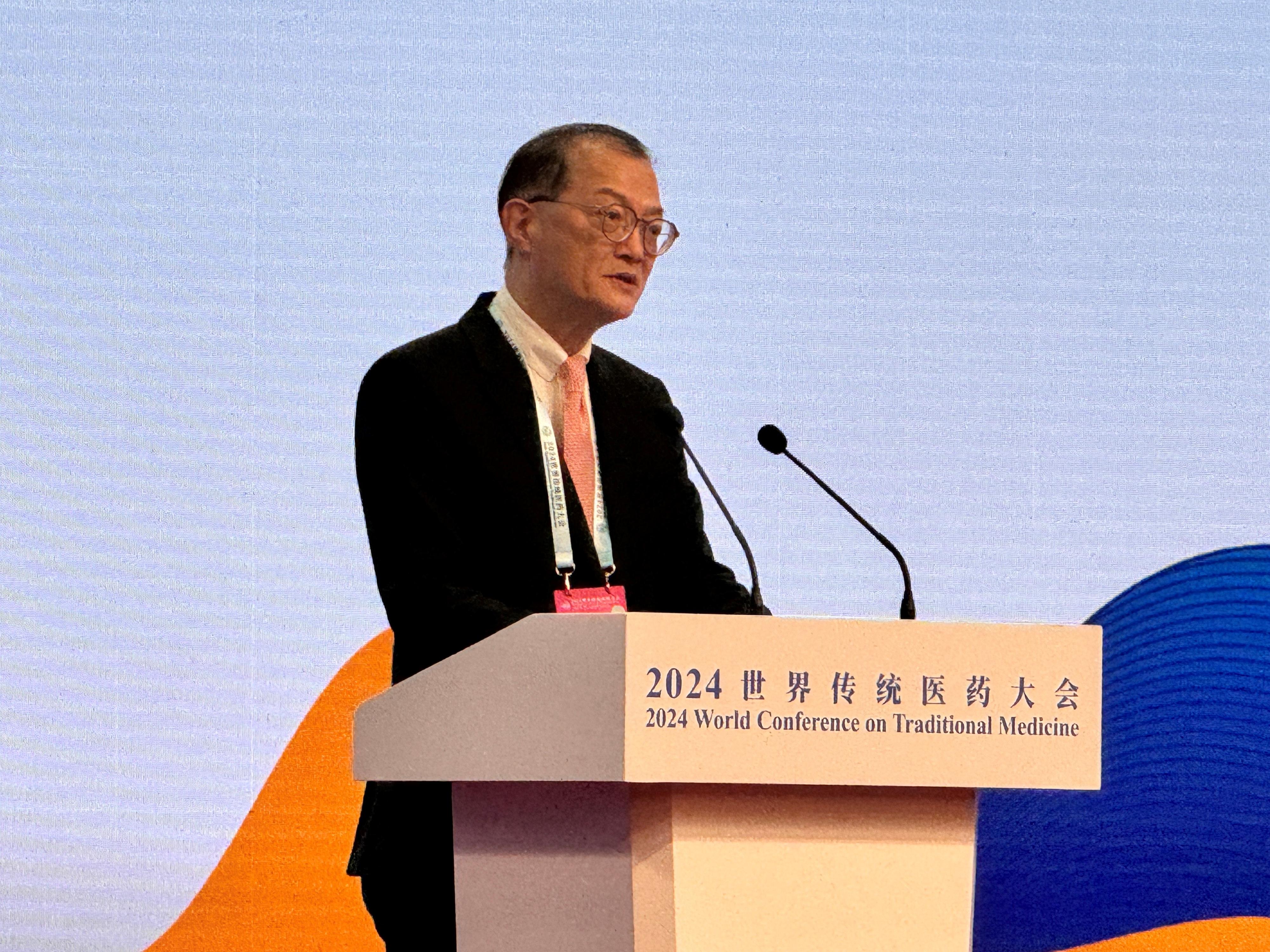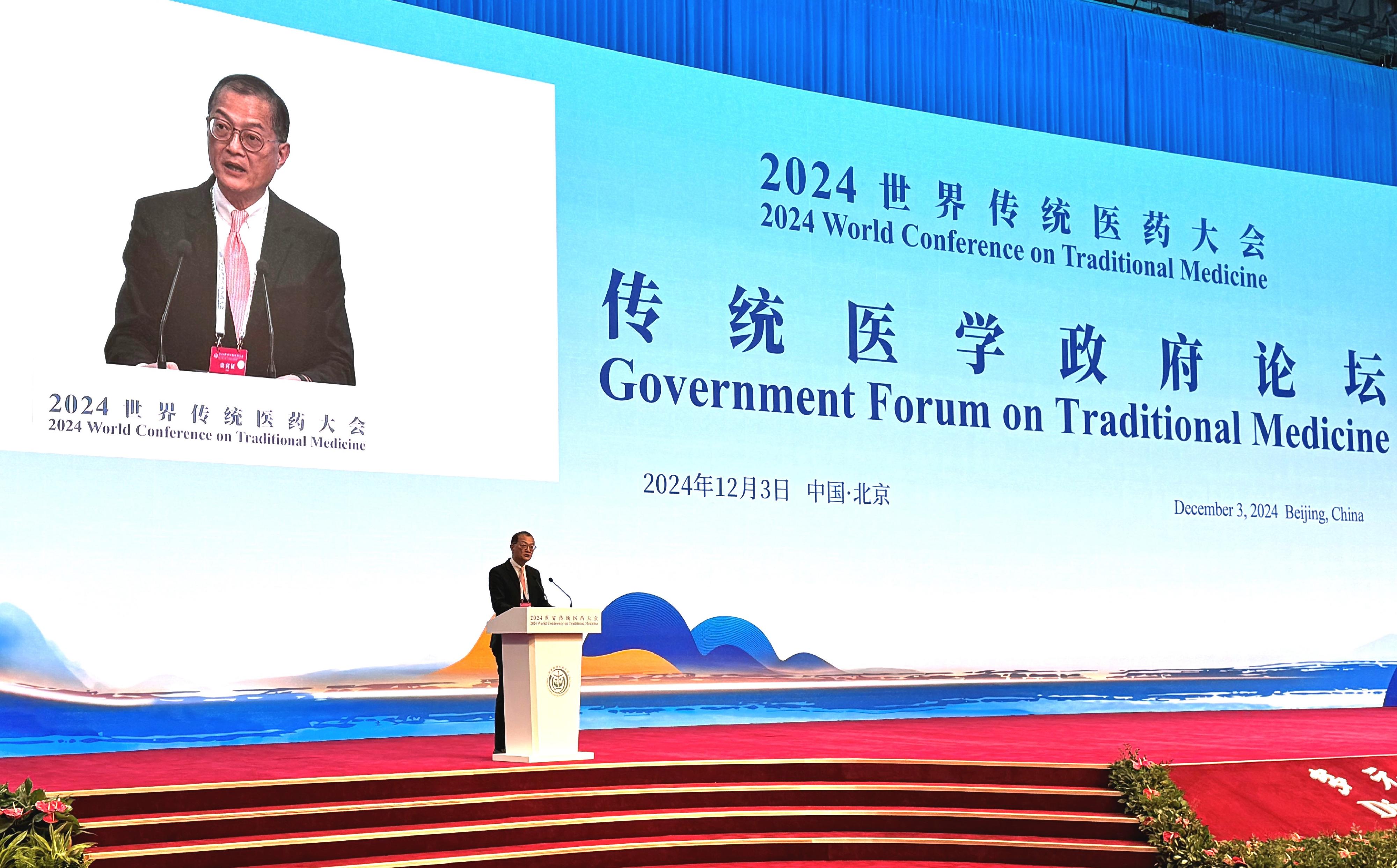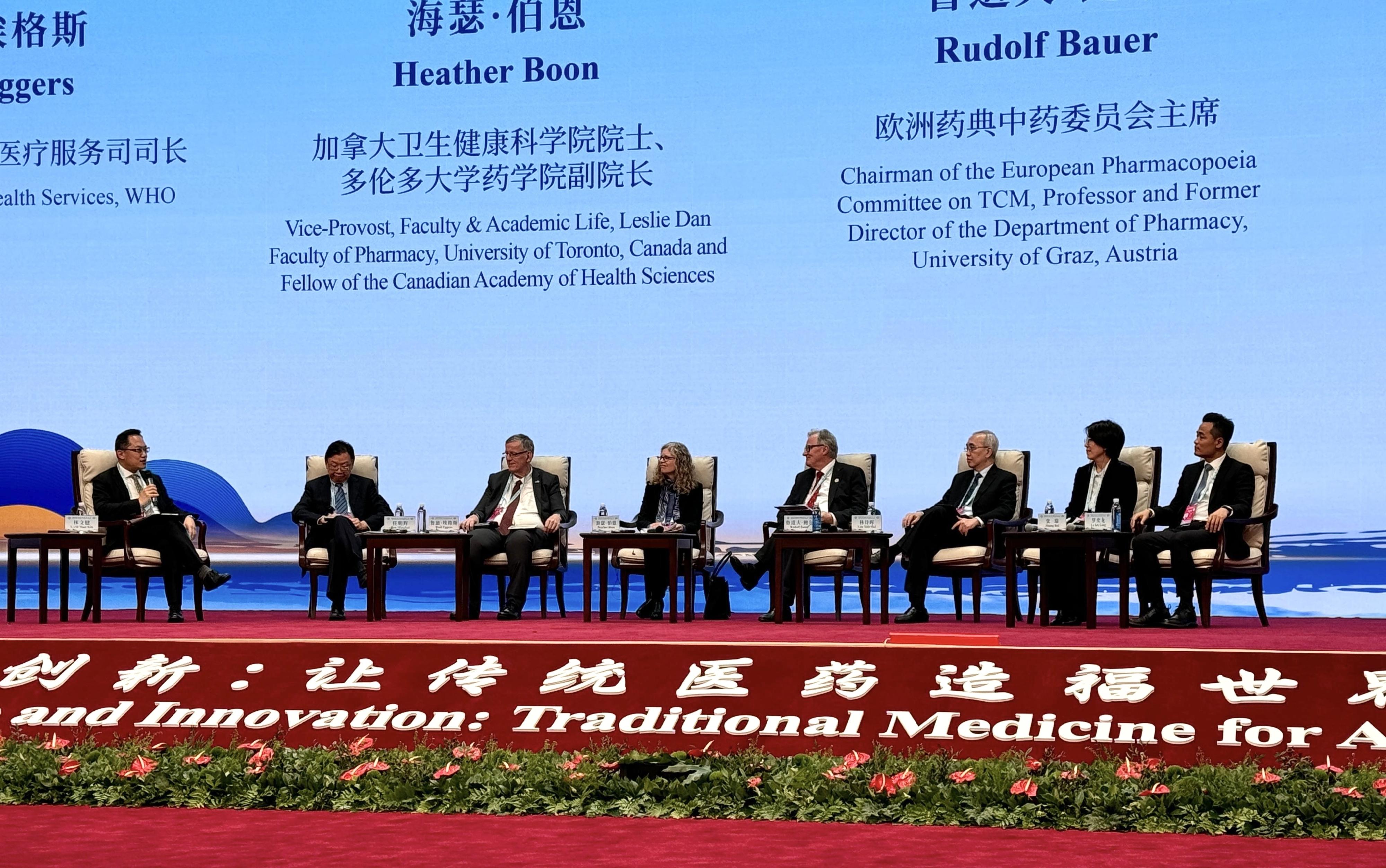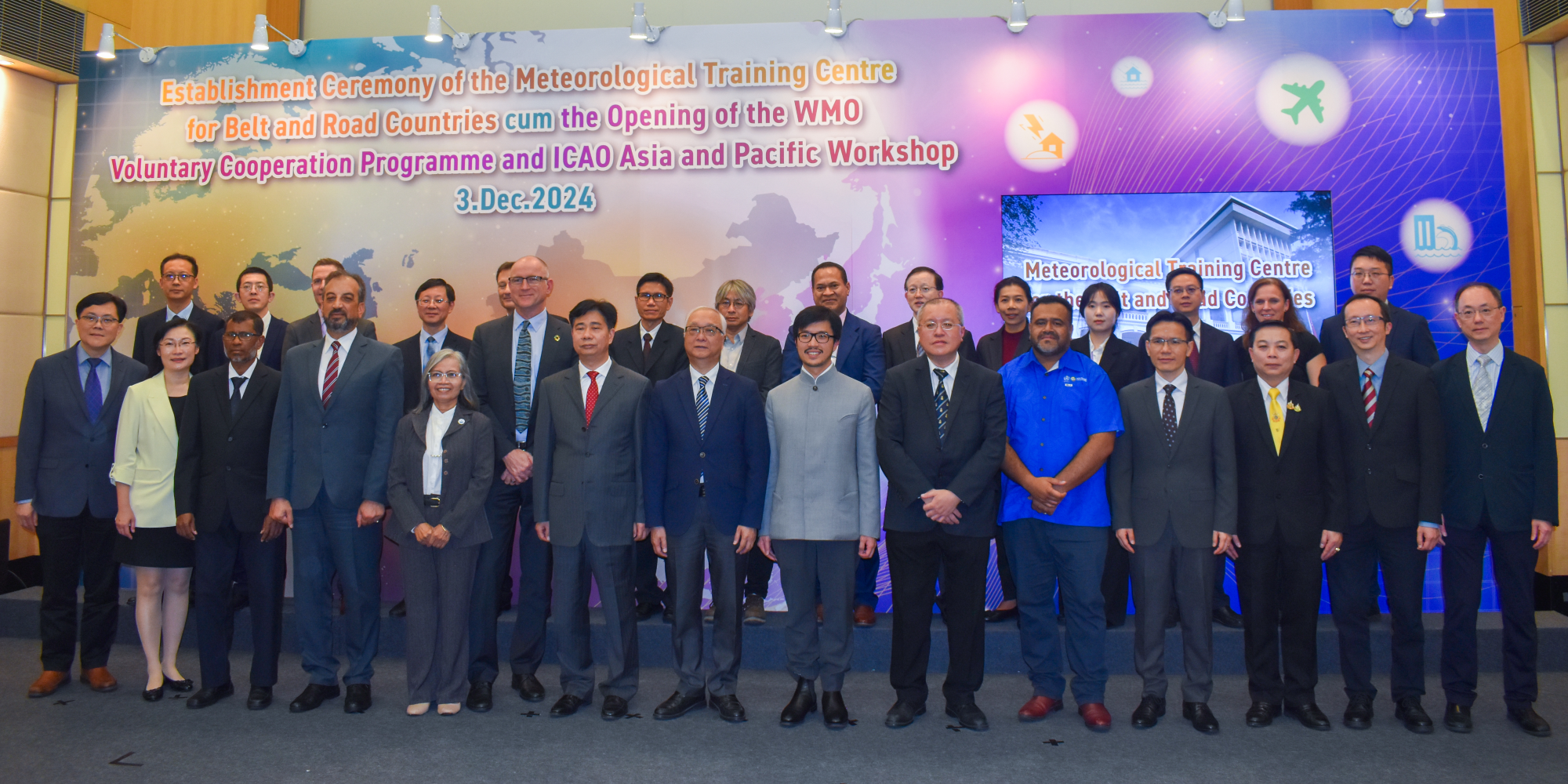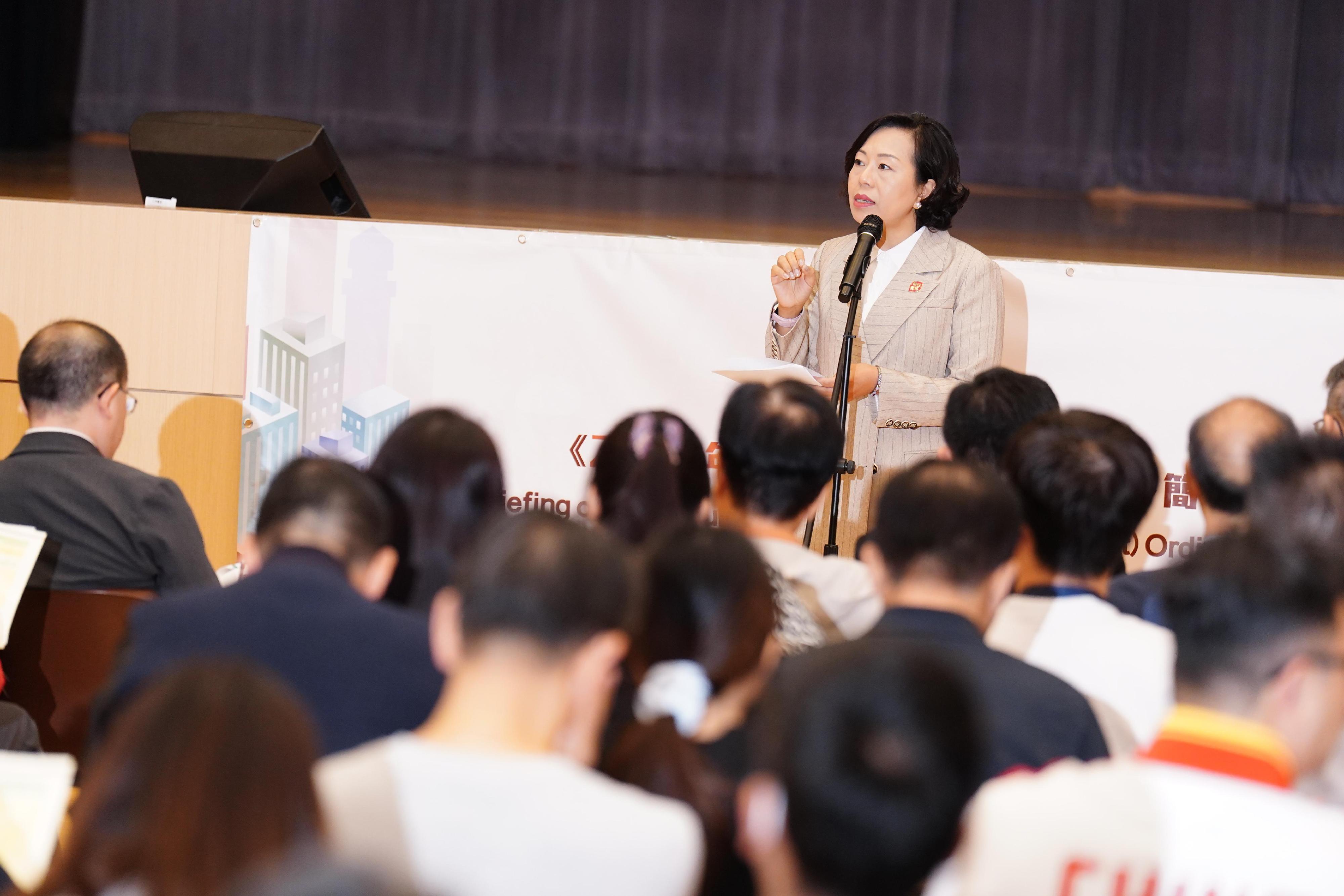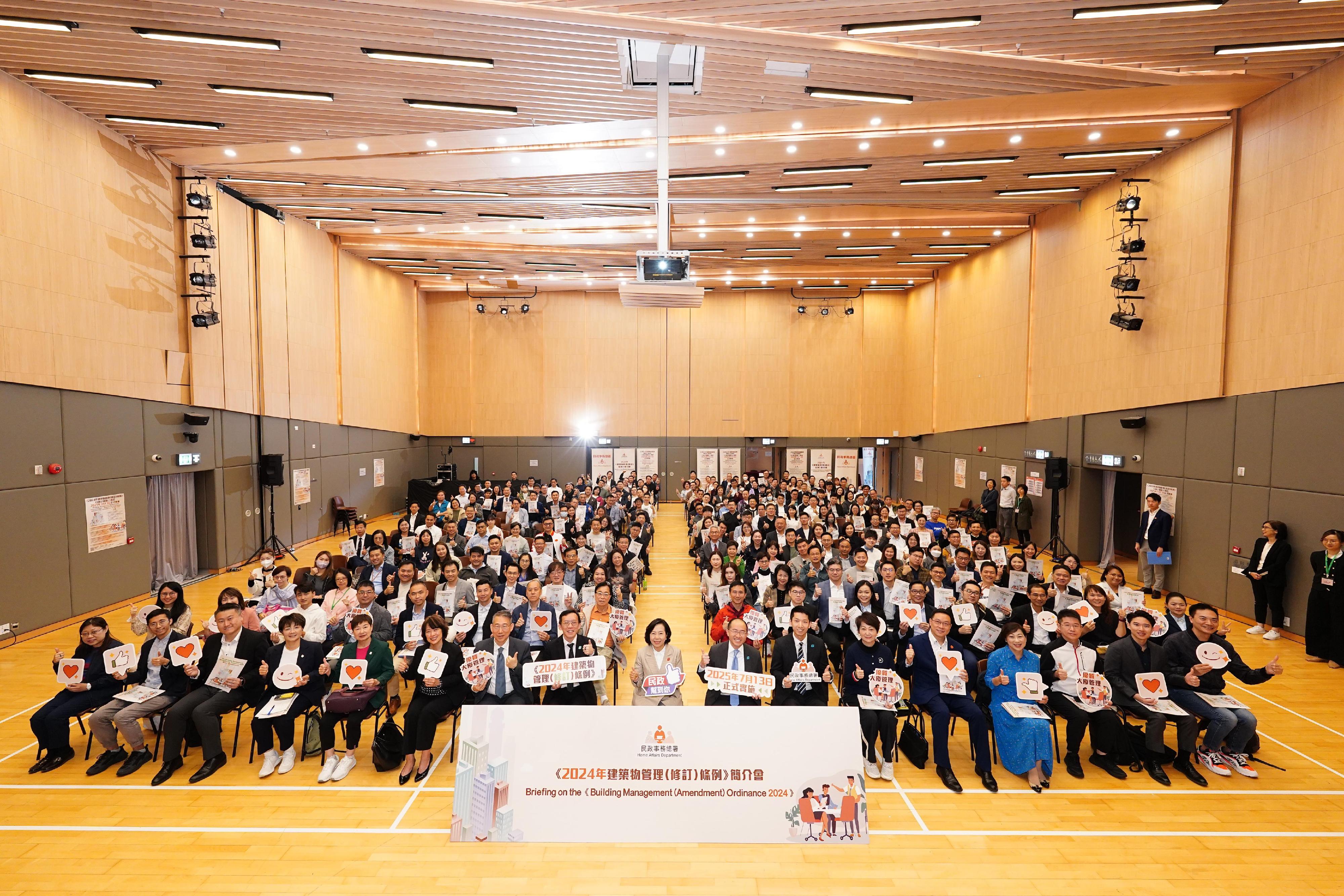Secretary for Health attends 2024 World Conference on Traditional Medicine in Beijing (with photos)
The Secretary for Health, Professor Lo Chung-mau, led a delegation to Beijing to attend the 2024 World Conference on Traditional Medicine today (December 3) to have in-depth discussions and exchanges with attendees of the conference on issues including legislation and regulation, policy formulation, service development, education and scientific research on traditional medicine, as well as promotion of integration of traditional medicine into healthcare service systems.
Jointly organised by the National Health Commission (NHC), the National Administration of Traditional Chinese Medicine (NATCM) and the People’s Government of Beijing Municipality in collaboration with the World Health Organization (WHO), the conference brought together representatives from the NHC, the NATCM and the WHO, senior health officials from around the world, as well as experts and academics in the traditional medicine field.
Professor Lo said, “In terms of traditional medicine development, Hong Kong embraces a distinctive healthcare system with pure Chinese medicine (CM) as well as Chinese and Western medicine adopted on a dual-track basis. The Hong Kong Special Administrative Region (HKSAR) Government strives to make use of the city’s advantages in medical education, regulatory regime, standard-setting, clinical research and more to leverage the role as a gateway to connect with the world, thereby developing Hong Kong into a bridgehead for the internationalisation of CM.
“Over the past two decades, Hong Kong has made significant progress in CM education, research and service development, etc. CM and Western medicine synergistically complement each other in their respective areas of expertise. The Hospital Authority (HA) has been developing an innovative Integrated Chinese-Western Medicine (ICWM) service model in public hospitals, forming the leading force in the realm of traditional medicine. Hong Kong’s first Chinese medicine hospital will commence services in phases starting from the end of next year, providing outpatient and inpatient services in pure CM, CM-predominant and ICWM. Serving as the city’s flagship CM institution, the Chinese Medicine Hospital of Hong Kong (CMHHK) will co-ordinate with local, Mainland and international partner organisations to establish collaborative platforms focusing on service enhancement, multidisciplinary professional training, clinical scientific research in CM and exploration of the application of clinical big data to foster international research collaboration on herb-drug interaction, with a view to setting out internationally recognised guidelines for the use of Chinese and Western medicine and driving the integration of CM into the Western medicine-predominant healthcare systems worldwide.”
Regarding the establishment of CM standards, Professor Lo said, “Since the launch of the Hong Kong Chinese Materia Medica Standards project in 2002, the Department of Health (DH) of the HKSAR Government has been developing standards for commonly used Chinese Materia Medica (CMM) in phases to ensure the safe use and the quality of CMM. The Chinese Medicine Regulatory Office of the DH has been designated as the WHO Collaborating Centre for Traditional Medicine since 2012. Moreover, the Government Chinese Medicines Testing Institute under the DH specialises in the testing of and scientific research on CM to establish internationally recognised reference standards for the safety, quality and testing methods of CM. In March this year, the DH launched the Digital Herbarium for Chinese Medicines, which is the first in the world using photogrammetry to produce three dimensional (3D) images on traceable CMM specimens, providing the public, the CM sector as well as research and development institutions around the world with comprehensive and accurate information on CM, thereby promoting traditional CM to go global.”
The Director of Health, Dr Ronald Lam, chaired the Panel Discussion at the conference, engaging with the WHO representatives, senior health officials from various countries/regions and academics, etc, to explore the role of traditional medicine in primary healthcare. Representatives of the DH and the HA also participated in Parallel Sessions under different themes, sharing their experiences of utilising acupuncture in supporting smoking cessation as well as the latest developments and policy visions in ICWM respectively.
Members of the Hong Kong delegation include the Director of Health, Dr Ronald Lam; the Commissioner for Chinese Medicine Development of the Health Bureau (HHB), Dr Vincent Chung; the Head of Tobacco and Alcohol Control Office of the DH, Dr Fung Ying; the Assistant Director of Health (Chinese Medicine), Dr Edmund Fong; the Chairman of the HA, Mr Henry Fan; and the Chief Executive of the HA, Dr Tony Ko; as well as other officials of the HHB, the DH and the HA. The Hospital Chief Executive of the CMHHK, Professor Bian Zhaoxiang, joined the delegation for the conference. Professor Lo and his delegation will return to Hong Kong tomorrow (December 4).


